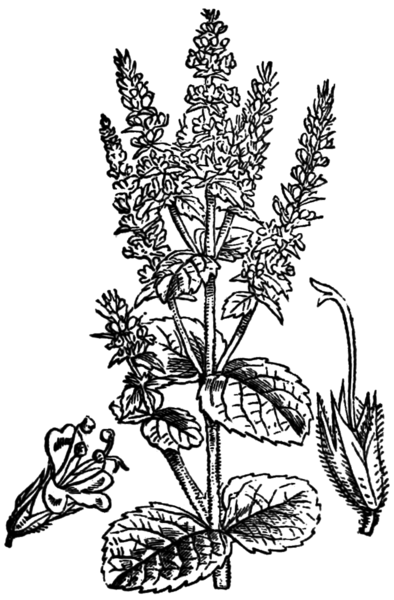
Don’t know what all to do with the mint you have growing in your garden? How about making some mint juleps on a hot, summer day? A drink often thought of as being a southern U.S. drink may have actually come from the north.

Origin Of The Mint Julep
Boston, Not The South, Seems To Have Invented It
A number of newspapers throughout the middle western and upper southern states are at present discussing with much cleverness and warmth the genesis of the mint julep, and the Baltimore Sun, in particular, seems to be very much wrought up over an attempt to ascribe the credit for the invention of the national drink to J.S.C. Blackburn, John G. Carlisle and other moderns.
The Sun invites attention to the fact that McMaster, the historian, in one of his books, quotes from the diary of an Englishman who traveled in Virginia early in the eighteenth century, and who makes mention of a drink flavored by bruising mint. This was long before J.S.C. Blackburn or John G. Carlisle had attained prominence.
But those who are interested in the subject need not pause here, for in the memoirs of Jeremy Lane (Salem, 1649), reference is made to a drink compounded of “mint herb and heating spirits, which is grateful to the palate when cooled in a stone jug at the spring,” while the Boston Gazette of August 17, 1697, contains a local item in which occurs the statement that the “drowned man was known to have drunk several goblets of a mixture composed of Hollands flavored with mint before he fell off the wharf,” which “should be an example to those who have lately formed the habit of imbibing with too much frequency what the publicans and tavern keepers call mint dewlip.”
“Julep” is evidently a corruption of the proper name, and one which is due to the heaviness of the pronunciation of those who formed the “habit” of ordering it.
According to the Sun, the subject is an engrossing one, and the controversy should be settled without delay, “that Americans may know where to erect a memorial to the monumental genius who gave the country the entrancing and seductive beverage in question,” not with the view of encouraging its use, however, but in order that a question of great historical interest may be settled.
Source: Evening Star. Newspaper. October 07, 1899.

